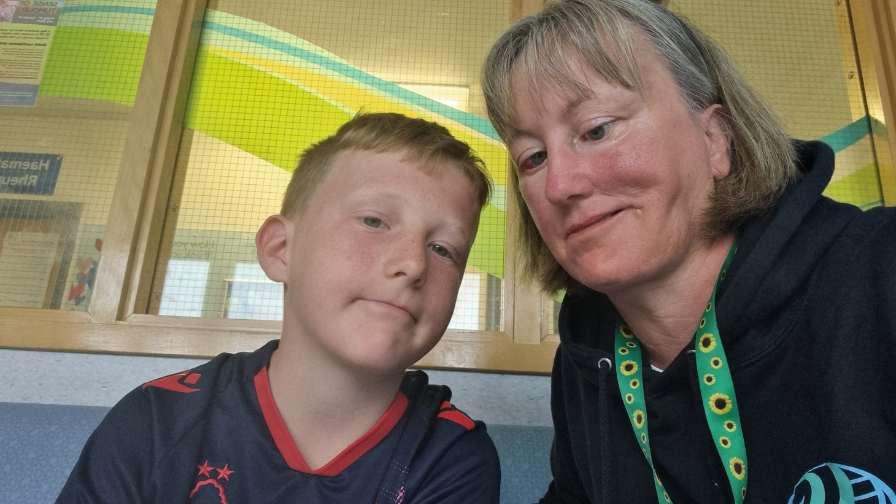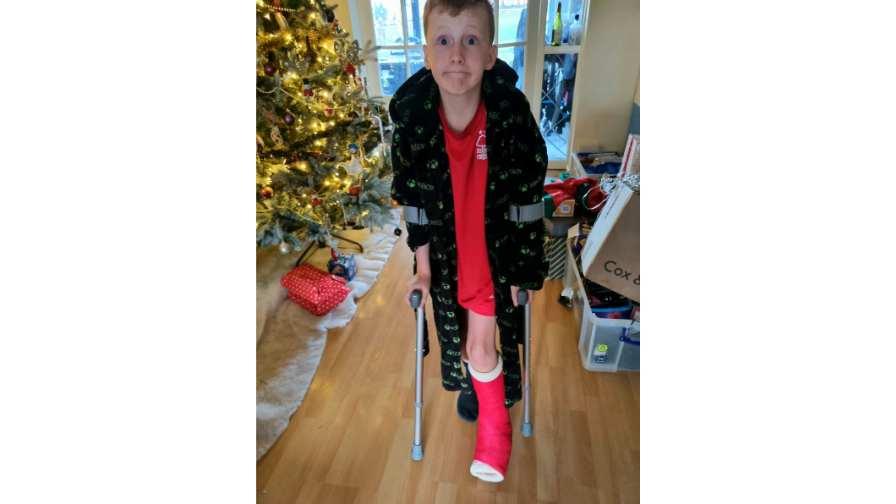Results of research carried out by Dr Sylwia Ammoun at the University of Plymouth has found that two anti-HIV drugs ritonavir and lopinavir could reduce the growth of two types of tumours found in NF2: schwannomas, that grow on nerve cells and meningiomas, which grow from the membranes surrounding the brain and spinal cord. Neurofibromatosis type 2 (NF2), more recently known as NF2-related schwannomatosis, is a rare genetic condition that is linked to the development of multiple slow-growing tumours in different parts of the nervous system. The research was funded by children’s charity Action Medical Research. The clinical trial is directed by Professor Oliver Hanemann, Chair in Clinical Neurobiology Peninsula Medical School at University Hospitals Plymouth NHS Trust.
At any one time, there are around 1,000 people with NF2, which is usually diagnosed in childhood or young adulthood.1,2,3 The tumours caused by NF2 are benign (not cancerous) but they can cause significant life-changing symptoms because their location on the spine and meninges covering the brain make them incredibly difficult to treat. Children and teenagers with NF2 can experience problems with hearing, sight, balance, mobility and can suffer from weakness, pain and headaches, as well as life-threatening complications. There is no cure for NF2. Treatments such as surgery and radiotherapy are only partially effective and tumours often recur.

Thirteen-year-old Oscar was diagnosed with NF2 when he was six years old after he was found to have a juvenile cataract in his left eye. Over the past few years, Oscar has developed 10 different tumours including bilateral vestibular schwannomas – tumours growing on the hearing nerves on both sides which has resulted in low level hearing loss on his left side. He also has frontal lobe meningioma in his brain and left and right trigeminal schwannomas at the base of the skull and five tumours on his spine.
Oscar’s mum Jo says, “Two of the tumours on Oscar’s spine led to his left foot being turned inwards, foot drop and muscle atrophy. Oscars left foot is two sizes smaller that his right and because of the tumours this will not change. He has significant loss of nerve function in his leg from the spine tumours and he will not get this back.” Although Oscar likes to keep active and plays football, the impact of NF2 is significant. He has at least 24 hospital appointments a year, including monthly infusions of the cancer drug Avastin, but he and the family try to stay positive. “The results of this new study could be a gamechanger for Oscar.,” says Jo who was diagnosed with NF2, as an adult at aged 29.
NF2 had been linked to changes in a gene that normally provides instructions for making a tumour-supressing protein called Merlin, which plays an important role in preventing cells from growing in an unregulated way.4 In NF2 tumours, such as schwannomas and meningiomas, the Merlin protein and its function are lost.5 Dr Ammoun discovered that certain types of proteins produced by some viruses, appeared to be present in NF2 schwannoma and meningioma tumour cells and contribute to the growth of NF2 tumours. One of the aims of the study was to determine whether antiviral drugs could be used as an effective new treatment option.

Dr Sylwia Ammoun, Senior Research Fellow, University of Plymouth, says: “We already had data suggesting that a group of viruses called human endogenous retrovirus K (HERVK), which are usually dormant, could be involved in NF2 schwannoma and meningioma development. We found that these viruses become active in two kinds of brain tumours in children with NF2. The findings that ritonavir and lopinavir could reduce the growth of patient-derived schwannoma and meningioma cells in the laboratory, at doses that were lower than those used to treat HIV, is significant, as is the finding that the drugs were more effective when used in combination. These promising results, have helped lead to a clinical trial to test whether HIV drugs can be repurposed to treat NF2 related tumours.”
The clinical trial is run at University Hospitals Plymouth NHS Trust and is directed by Professor Oliver Hanemann, Chair in Clinical Neurobiology Peninsula Medical School.
Action Medical Research has a long history of supporting groundbreaking medical research that offers new hope to children affected by rare diseases, such as NF2. Dr Caroline Johnston, Senior Research Manager at Action Medical Research says: “The work carried out by Dr Ammoun and her team, and the resulting clinical trial highlights the importance of the charity’s support of medical research including essential early laboratory research. We welcome the increase in understanding of the causes of NF2. We look forward to the results of the clinical trials which could bring hope to Oscar and those living with NF2.”
For more information on Action Medical Research go to www.action.org.uk.
References
[1] Nerve Tumours UK, “What is NF2?,” Nerve Tumours UK, 2024. [Online]. Available: https://nervetumours.org.uk/what-are-nerve-tumours/what-is-nf2. [Accessed September 2024].
[2] Cancer.Net, “Neurofibromatosis Type 2,” Cancer.Net Editorial Board, 06 2023. [Online]. Available: https://www.cancer.net/cancer-types/neurofibromatosis-type-2. [Accessed September 2024].
[3] Office for National Statistics, “Population Estimates,” 26 March 2024. [Online]. Available: https://www.ons.gov.uk/peoplepopulationandcommunity/populationandmigration/populationestimates/bulletins/annualmidyearpopulationestimates/mid2022. [Accessed 15 May 2024].
[4] Ghalavand et al. 2023. The genetic landscape and possible therapeutics of neurofibromatosis type 2. Cancer Cell International. https://doi.org/10.1186/s12935-023-02940-8.
[5] Petrilli and Fernández-Valle, 2016. Role of Merlin/NF2 Inactivation in Tumor Biology. Oncogene. 35(5): 537–548. https://doi:10.1038/onc.2015.125.
